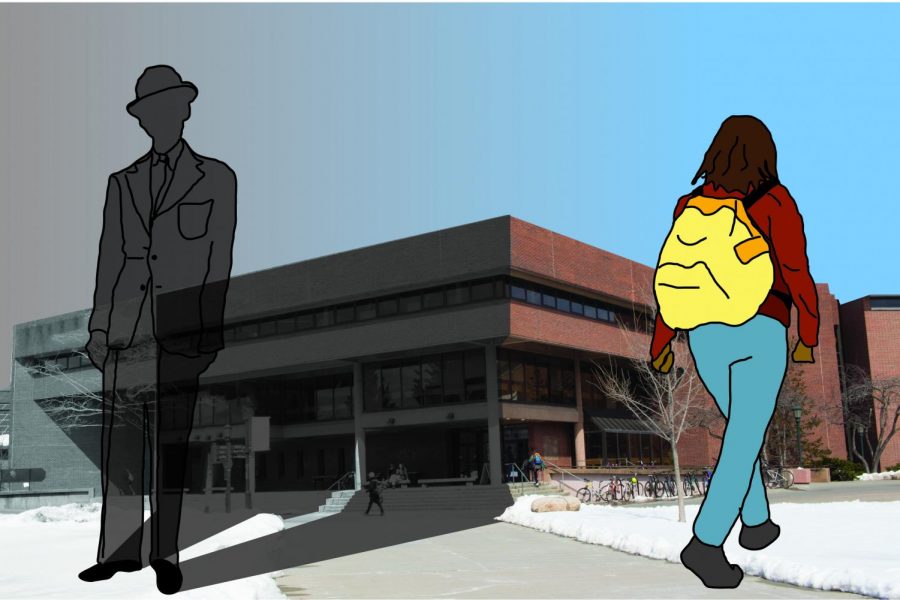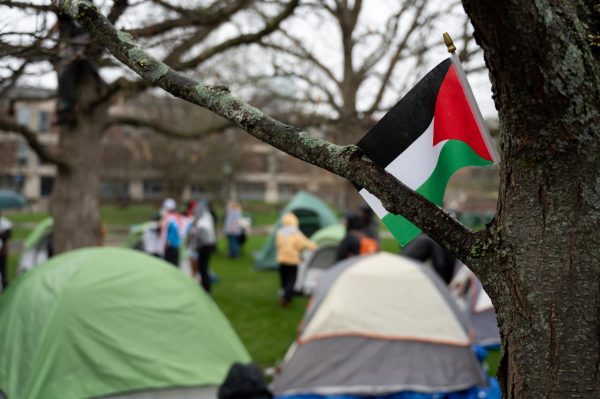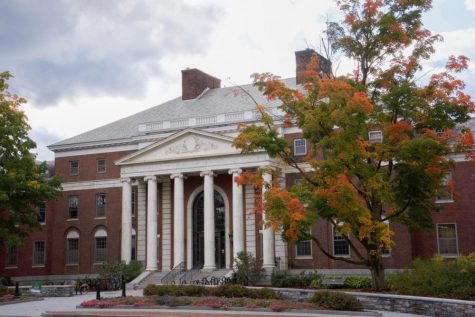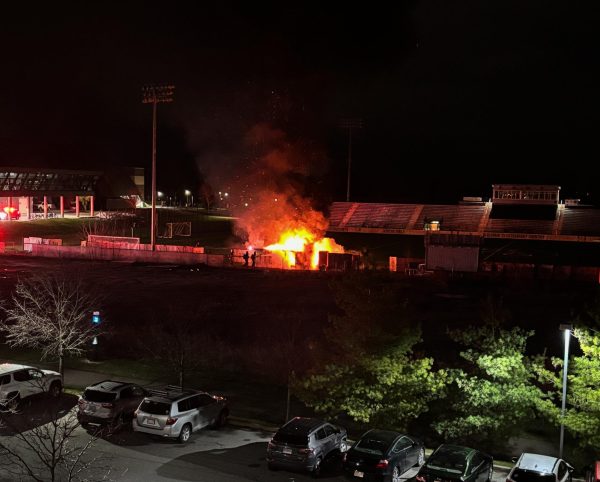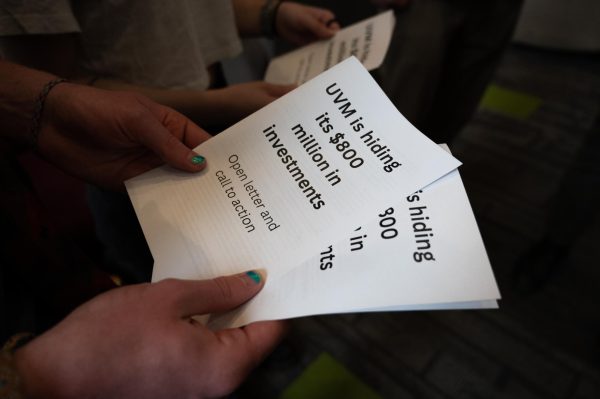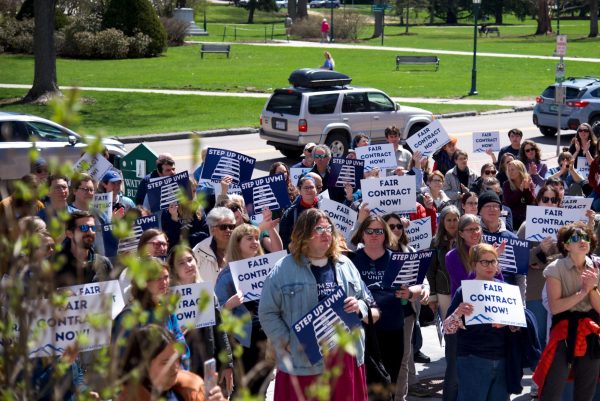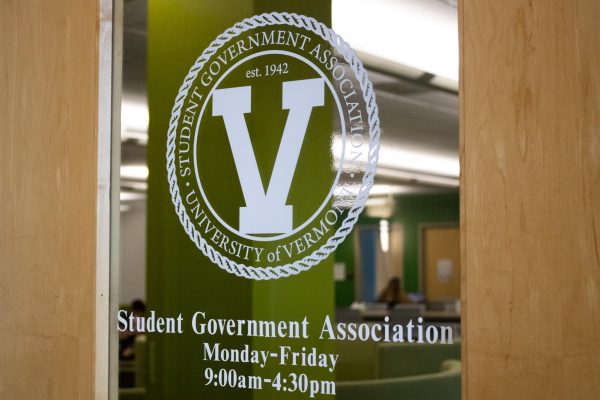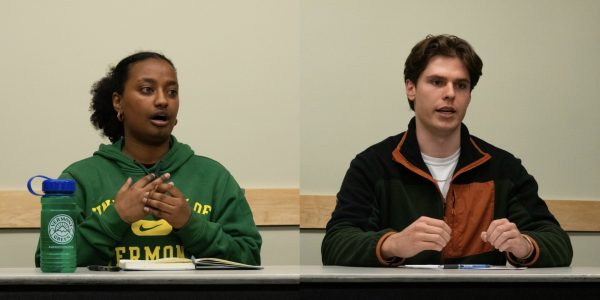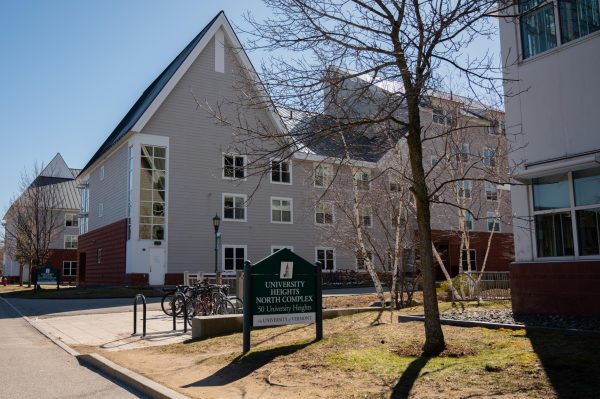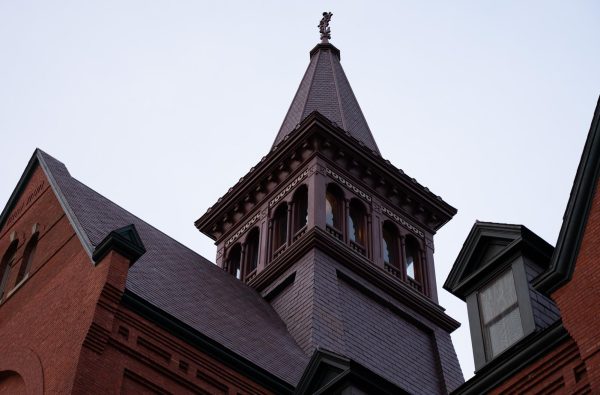NoNames demands new names
March 26, 2018
This article updated from a previous version at 7:18 p.m.
Following protests, a board-of-trustees-appointed committee is considering renaming campus buildings, but student activists are frustrated after being left out of the decision-making process.
The Building Renaming Advisory Committee, which will meet April 2, is accepting renaming proposals from University students and faculty.
The committee will then determine if these changes will be successful, according to a March 8 email from David Daigle, chair of the board of trustees.
The board of trustees formed this committee without input from NoNames for Justice, a student activist group.
Protests from the group sparked debate over the names of several buildings on campus, according to the NoNames March 22 statement.
“While we recognize the efforts made toward progress, it is vital that students and all parties most affected by these decisions are able to be a part of creating the new system addressing this issue,” the group stated.
NoNames does not consider the committee alone to be an adequate response to their demands, according to the statement.
The committee will use the Yale criteria to evaluate the proposals, a method that NoNames decried in its statement.
The Yale criteria consider whether a building’s namesake was at odds with the University mission at the time it was named, and whether the chosen name resulted in a legacy opposed to University values, according to Yale’s website.
By neglecting to consider UVM history, the Yale criteria would “lead to reproducing the very structures of marginalization and oppression that we are dedicated to dismantling,” the group stated.
A University workgroup — which included English professor Major Jackson, SGA President Chris Petrillo and Wanda Heading-Grant, vice president for human resources — unanimously decided to use the Yale criteria to rename buildings, Daigle stated.
After meeting, the committee will present its findings to the board of trustees, who will have the final say, said Pablo Bose, committee member and associate geography professor. Bose said the formation of the committee will not guarantee new names on the buildings.
“I shouldn’t say that they will not, but I also will not say that they will,” he said.
The formation of the committee was not a direct outcome of NoNames protests, which raised the issue of renaming buildings, Bose said.
The committee was one of several proposals to address student concerns discussed in fall 2017, said Tom Gustafson, vice president for university relations and administration.
Bose was recruited to UVM through a program which sought faculty of color. He was appointed because of his campus involvement, he said.
He almost declined the renaming committee position, he said.
“I find myself very frustrated by the way things have gone,” he said.
Much of the anger toward and demands of the administration have been misguided, Bose said. While their efforts have not always been effective, the University administration has worked in various ways to better the experience of students of color, he said.
“You have to have a thoughtful process that says, ‘what is the history of this building.’ Simply saying X is wrong because of this association, that is not enough,” Bose said, referring to Perkins hall, named after the father of Vermont eugenicist Henry Farnham Perkins.
Correction: A previous version of this article quoted Bose as saying “These buildings will not, for a fact, have a different name.” This quote was taken out of context. What Bose said was “I shouldn’t say that they will not, but I also will not say that they will.” The Cynic regrets this error.


